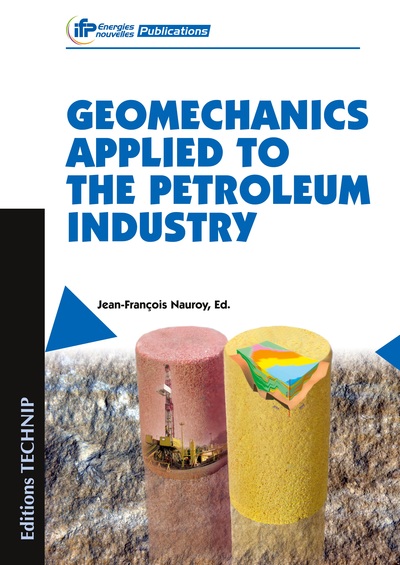Nous utilisons des cookies pour améliorer votre expérience. Pour nous conformer à la nouvelle directive sur la vie privée, nous devons demander votre consentement à l’utilisation de ces cookies. En savoir plus.
GEOMECHANICS APPLIED TO THE PETROLEUM INDUSTRY
Technip - EAN : 9782710809326
Édition papier
EAN : 9782710809326
Paru le : 1 août 2011
110,00 €
104,27 €
Disponible
Pour connaître votre prix et commander, identifiez-vous
Notre engagement qualité
-
 Livraison gratuite
Livraison gratuite
en France sans minimum
de commande -
 Manquants maintenus
Manquants maintenus
en commande
automatiquement -
 Un interlocuteur
Un interlocuteur
unique pour toutes
vos commandes -
 Toutes les licences
Toutes les licences
numériques du marché
au tarif éditeur -
 Assistance téléphonique
Assistance téléphonique
personalisée sur le
numérique -
 Service client
Service client
Du Lundi au vendredi
de 9h à 18h
- EAN13 : 9782710809326
- Réf. éditeur : 375093
- Editeur : Technip
- Date Parution : 1 août 2011
- Disponibilite : Disponible
- Barème de remise : NS
- Nombre de pages : 216
- Format : H:240 mm L:170 mm E:14 mm
- Poids : 420gr
- Résumé : Designing an efficient drilling program is a key step for thedevelopment of an oil and/or gas field. Variations in reservoirpressure, saturation and temperature, induced by reservoirproduction or CO2 injection, involve various coupled physical andchemical processes.Geomechanics, which consider all thermohydromechanicalphenomena involved in rock behavior, play an important role inevery operation involved in the exploitation of hydrocarbons, fromdrilling to production, and in CO2 geological storage operations aswell. Pressure changes in the reservoir modify the in situ stressesand induce strains, not only within the reservoir itself, but also inthe entire sedimentary column. In turn, these stress variations andassociated strains modify the fluids flow in the reservoir and changethe wellbore stability parameters.This book offers a large overview on applications of Geomechanics topetroleum industry. It presents the fundamentals of rock mechanics,describes the methods used to characterise rocks in the laboratoryand the modelling of their mechanical behaviour; it gives elements ofnumerical geomechanical modelling at the site scale.It also demonstrates the role of Geomechanics in the optimisationof drilling and production: it encompasses drillability, wellborestability, sand production and hydraulic fracturing; it providesthe basic attainments to deal with the environmental aspectsof heave or subsidence of the surface layers, CO2 sequestrationand well abandonment; and it shows how seismic monitoringand geomechanical modelling of reservoirs can help to optimiseproduction or check cap rock integrity.This book will be of interest to all engineers involved in oil fielddevelopment and petroleum engineering students, whether drillersor producers. It aims also at providing a large range of potential userswith a simple approach of a broad field of knowledge.


